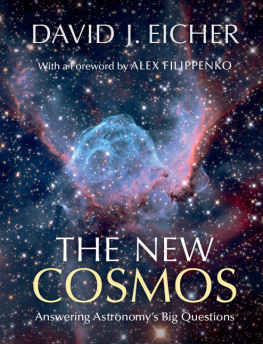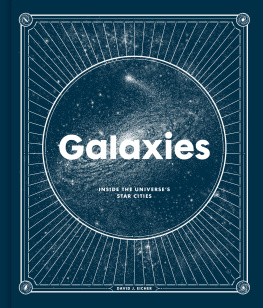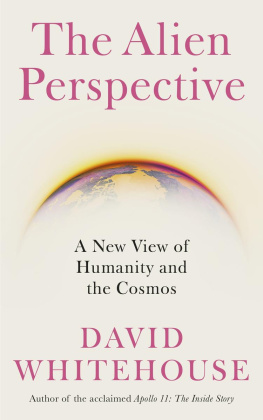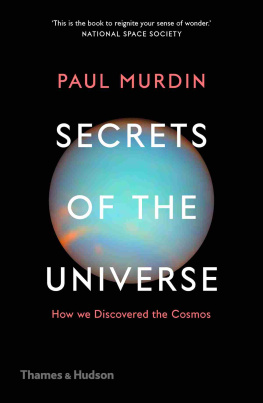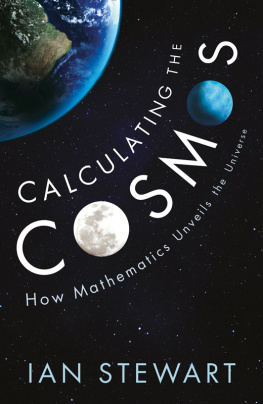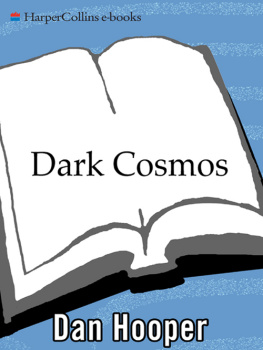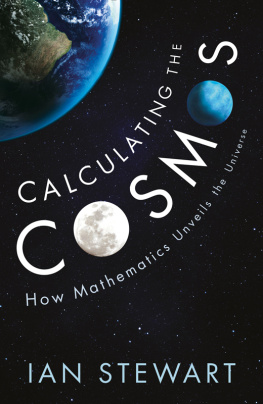The New Cosmos
Answering Astronomys Big Questions
Over the past decade, astronomers, planetary scientists, and cosmologists have answered or are closing in on the answers to some of the biggest questions about the universe. David J. Eicher presents a spectacular exploration of the cosmos that provides you with a balanced and precise view of the latest discoveries. Detailed and entertaining narratives on compelling topics such as how the Sun will die, the end of life on Earth, why Venus turned itself inside-out, the Big Bang Theory, the mysteries of dark matter and dark energy, and the meaning of life in the universe are supported by numerous color illustrations, including photos, maps, and explanatory diagrams. In each chapter, the author sets out the scientific history of a specific question or problem, before tracing the modern observations and evidence in order to solve it. Join David J. Eicher on this fascinating journey through the cosmos!
David J. Eicher is Editor-in-Chief of Astronomy magazine, and one of the most recognized astronomy enthusiasts in the world. He has spoken widely to amateur astronomy groups and written eight books on astronomy, including Comets: Visitors from Deep Space and The Universe from Your Backyard . He is president of the Astronomy Foundation and a member of the Board of Directors for Starmus Festival. An avid observer of astronomical objects for more than 35 years, he was honored by the International Astronomical Union with the naming of a minor planet, 3617 Eicher.
The New Cosmos
Answering Astronomys Big Questions
David J. Eicher
Editor-in-Chief, Astronomy magazine
Foreword by Alex Filippenko
University of California, Berkeley

University Printing House, Cambridge CB2 8BS, United Kingdom
Cambridge University Press is part of the University of Cambridge.
It furthers the Universitys mission by disseminating knowledge in the pursuit of education, learning, and research at the highest international levels of excellence.
www.cambridge.org
Information on this title: www.cambridge.org/9781107068858
David J. Eicher 2015
This publication is in copyright. Subject to statutory exception and to the provisions of relevant collective licensing agreements, no reproduction of any part may take place without the written permission of Cambridge University Press.
First published 2015
Printed in the United Kingdom by Bell and Bain Ltd
A catalog record for this publication is available from the British Library
Library of Congress Cataloging in Publication Data
Eicher, David J., 1961
The new cosmos : answering astronomys big questions / David J. Eicher, editor-in-chief, Astronomy magazine ; foreword by Alex Filippenko, University of California, Berkeley.
pages cm
Includes bibliographical references and index.
ISBN 978-1-107-06885-8 (Hardback)
1. Astronomy. 2. Cosmology. I. Title.
QB43.3.E33 2015
520dc23 2015023761
ISBN 978-1-107-06885-8 Hardback
Cambridge University Press has no responsibility for the persistence or accuracy of URLs for external or third-party internet websites referred to in this publication, and does not guarantee that any content on such websites is, or will remain, accurate or appropriate.
Now that anyone is free to print whatever they wish, they often disregard that which is best and instead write, merely for the sake of entertainment, what would be best forgotten, or, better still be erased from all books. And even when they write something worthwhile they twist and corrupt it to the point where it would be much better to do without such books, rather than having a thousand copies spreading falsehoods over the whole world.
Niccol Perotti (1429/301480)
If the Lord Almighty had consulted me before embarking on creation thus, I should have recommended something simpler.
Alfonso X of Castile (12211284)
Contents
Foreword
Its often said that we now live in a golden age of astronomy and indeed, its true.
Hardly a week goes by without a press release informing the public of a new cosmic discovery made with one or more instruments from the existing arsenal of ground-based and space-based telescopes, or through theoretical and computational studies. Sometimes, especially during national and international meetings such as those of the American Astronomical Society, several new celestial findings are announced each day.
And what amazing developments we have witnessed! Just 2 decades ago, in the mid-1990s, the evidence for dark matter was tantalizing but not compelling, contrary to the present situation. In a still greater turn of events, hardly anyone considered the possibility that even more mysterious dark energy dominates the mass-energy content of the universe and accelerates its expansion, probably dooming us to end in the Big Chill. Only the first few exoplanets had been discovered, foreshadowing the thousands that are now known or strongly suspected, and the detection of Earth-like exoplanets in the near future was considered unlikely. Given the few observed objects in the Kuiper Belt and their relatively small sizes, for another decade most astronomers would still consider Pluto to be a genuine planet. Black holes, previously popular mainly among the fertile minds of theoretical physicists and science-fiction writers, were suspected to exist but not yet detected beyond reasonable doubt.
As a long-time editor of the well-known Astronomy magazine, author David Eicher gained much experience in bringing celestial highlights to amateur astronomers and astronomy enthusiasts. One could learn the basics of astronomy and physics in standard textbooks, such as my own The Cosmos: Astronomy in the New Millennium (coauthored with Jay M. Pasachoff), but such books are not able to describe new discoveries on short timescales, and much of their volume must remain devoted to the fundamentals. Conversely, amateur astronomy periodicals generally do not provide very detailed analyses of the state of various astronomical subfields, concentrating instead on relatively brief summaries of recent developments.
In this book, on the other hand, Eicher synthesizes a wealth of relatively new information into an interesting, coherent, up-to-date overview of many of the most important and exciting areas of astronomy. Inspired as a youngster by the legendary Carl Sagan, and having a deep love of bringing the cosmos to the general public, he passionately shares his broad knowledge and presents the state of the art on topics ranging from our own solar system and the Milky Way Galaxy, to other planetary systems and galaxies, to the lives and deaths of stars, and to the overall composition and fate of the cosmos. Along the way, he considers the future of life on Earth, the possibility of life elsewhere, and even the meaning of life.
Two decades from now, it will be interesting to see how much our view of the universe will differ from what is presented here. Will we better understand the origin of the Moon, the absence of water on Mars, and the geologic history of Venus? Will we have mapped oceans and continents on exoplanets in the Goldilocks zone? Will we have directly detected exotic particles thought to be responsible for most of the dark matter in the cosmos? Will we know the true nature of dark energy and the ultimate fate of the universe?
Immersing yourself in the chapters that follow will give you a new sense of wonder at the amazing universe that we inhabit, yet simultaneously awakening both your humility as a cosmic speck of dust and your awe at our present understanding of the cosmos. And there is little doubt that this book will help inspire inquiring minds to further investigate the universe and its contents, as the human brain is restless and there is still far more to be learned.
Next page
